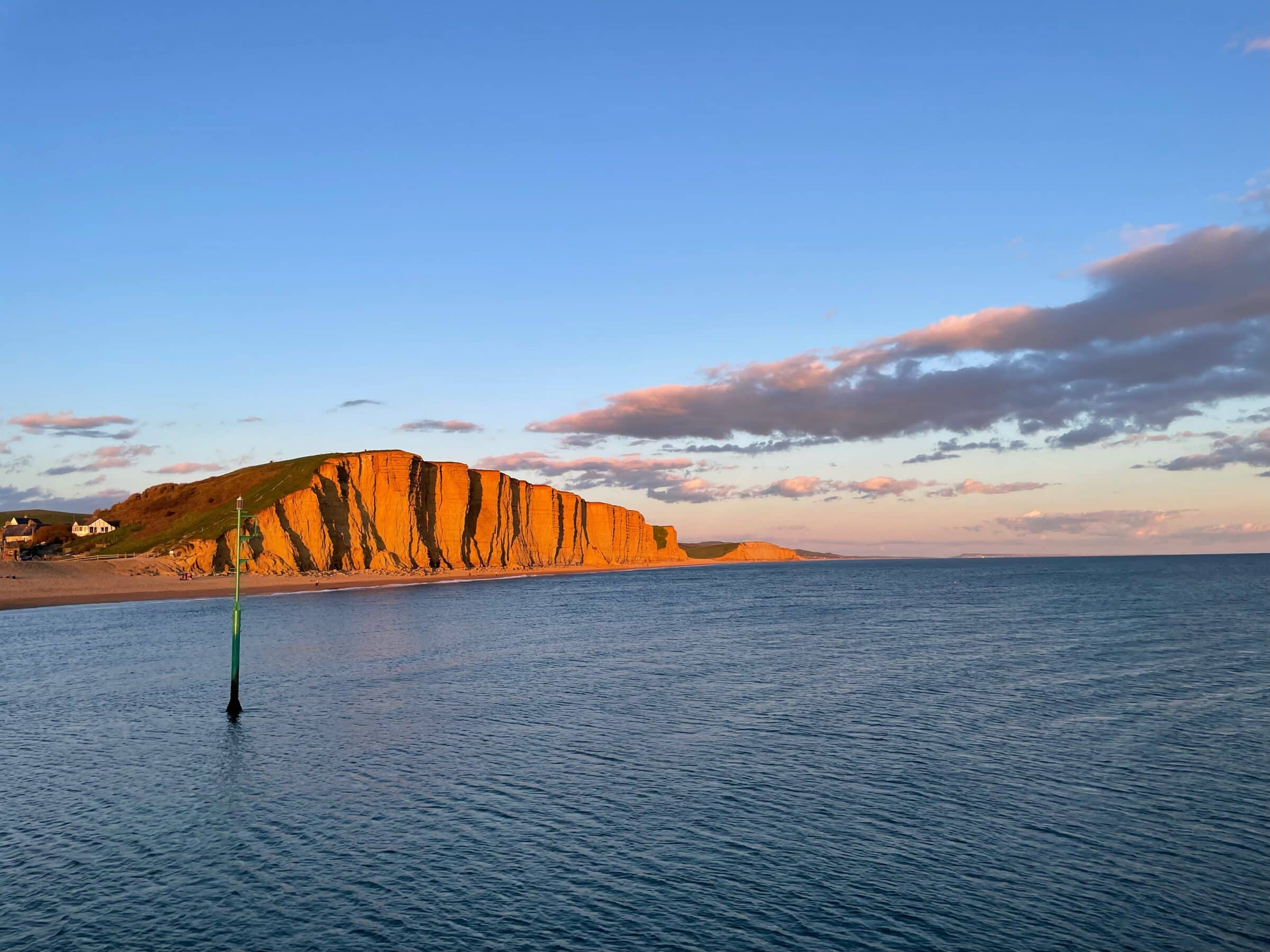
CHLOE WHITING
I heard about the Dorset Writing Residency from my university’s weekly opportunities bulletin. I applied instantly, because it felt like a dream that I’d love to be a part of. Months later I found myself in Dorset: thrilled in a very surreal way and itching to start the week.
Inspiration at Dorset Museum
On the first day, I met with Dayal Kindy, my fellow writer in residence who I had the joy of spending the week with. We began the residency in Dorchester at the Dorset Museum and Art Gallery which ended up being the first place where I’d felt inspired enough to write in months. The Elisabeth Frink exhibition showcases a sense of humanity in a way that I’ve always wanted to tap into with my own work, so it was incredible to view it in person, as well as learn more about the context and history.
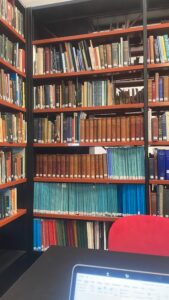
We were given a tour of the museum, including the Peter and Maddy Down Library, where I ended up situated for a large chunk of my time in Dorchester.
Meeting author Tracy Chevalier
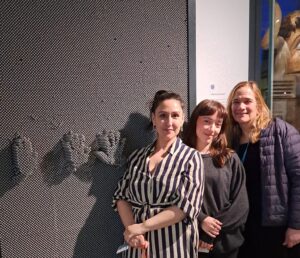
The same day, I had the chance to meet with the lovely Tracy Chevalier, a novelist who talked through her writing process and her connection to Dorset. We spoke a lot about research methods, as well as balancing writing with the rest of your life and how that can sometimes be a challenge. The rest of my time in Dorchester was quieter, filled with walks through the town, time spent writing that I would never usually have given myself.
Creativity comes to life in Bridport
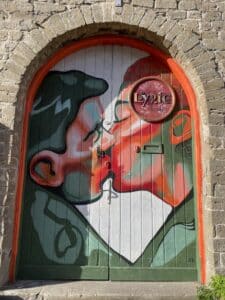
In Bridport, I really felt my creativity come to life. I spent two days in the coastal town, primarily in the Lyric Theatre, a beautiful venue. Writing in there felt like stepping into a time capsule; a bubble outside of reality where I felt inspired and connected to continue my own writing. The town of Bridport is imbued with a special kind of magic, and as someone who’s only ever lived in big cities, walking around the town and being able to write there was a beautiful change of pace and energy.
Novel Night!
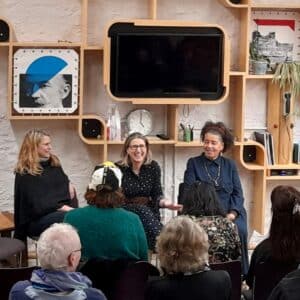
One of the highlights of my week was the Bridport Prize Novel Night, an evening dedicated to meeting local writers, and hearing from speaker Helen Corner-Bryant, as well as authors Isabel Ashdown and Kim Squirrell. Participating in this event made me feel like I was a part of a community, and conversations about a love of writing, individual journeys, and struggling with imposter syndrome reconnected me with my original passion for writing that I started with.
‘Recommend in a heartbeat’
There’s so much more I could say, aside from the obvious about how much I enjoyed my time in Dorset, how I would recommend it to others in a heartbeat, and how the whole week was an absolute joy to be a part of. The chance to have dedicated time to write, especially in such a historically rich place, was an entirely new experience for me, and one I’m so grateful to have had. Working part time alongside a degree meant I rarely had time to sit and write, and this residency gave me space to do that. I connected more with my own writing in the residency week than I had in months, and the entire week was filled with opportunities to meet lovely members of the team who had made my time in Dorset possible.
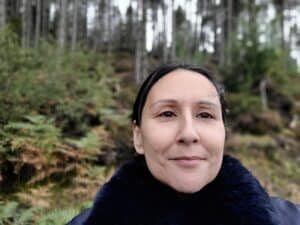
DAYAL KINDY
Heading down to Dorset as a writer-in-residence I was tapped out. Drained, what did I have to give? As it turned out, this was the wrong question, since I left Dorset with little given, but plenty received.
‘I gained time and space’
I gained space and time: a window in the everyday mundane contrition of being a writer: of being human. Every writer I know is a genuine gift to the literary ecosystem. Some work part-time, full-time, juggle jobs, while somehow saving energy for their novels, memoirs and short story collections, not forgetting their responsibilities as parents, carers and good friends. So any break from the everyday is a gift of nervousness and newness.
Part of something
I came to Dorset with an agenda: to grow my word count. I would prove my worth in Dorset by writing more than I ever had. I was going to write and write until my fingers were stiff and my carpal tunnels squeaked under the pressure.
The thing about gaining time and space is that without the space and time to unfurl, it’s easy to lose perspective. We were lucky to be invited to an evening with writers local to Bridport: Isabel Ashdown and Kim Squirrell. I sat in the audience, as they generously shared stories of their writing journeys.
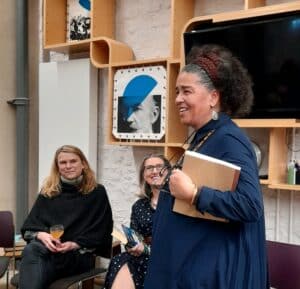
Two very important things happened. Firstly, I felt part of something. A fellowship of writers and creative souls, which stretched out far behind and way in front of me, and best of all I had a place in this web. Not because I could crank up the word count, or that I occasionally wrote something that felt alive, but because I wanted to be part of the web, and I spent every effort committed to it.
‘I was a writer. I felt it’
For the first time in a really long time, I felt enough, like I was in the right place, and there was no outcome, or rejection or acceptance or crappy draft that could take that away. I was a writer. I felt it.
The second thing, was no less of an awakening, but much less welcome. I got stuck. The day following the writer’s event, I could no longer write. I spent a frustrated morning staring at my computer in the local theatre, before resorting to drawing charts and arrows. My word count no longer grew. This was the fault of Kim Squirrell. At the writer’s event she had spoken about her characters in a way that made me realise that I did not know mine at all. It stuck me to the spot.
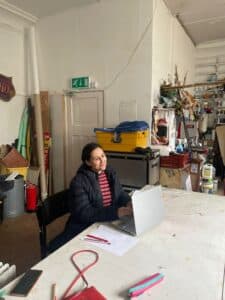
But the epiphany was recognising that I moved my latest characters like puppets, with my hand stuck inside the empty centre of the glove, where the guts and mess propelling my characters into meaningful action should have been. I was stuck but knew this was the work of writing, I had the confidence to stop knitting my comfort blanket of words, discover the beating heart of my story, of myself and sit with the discomfort of it.
Warmth and generosity
The other thing I must share, is the importance of the Shire Hall and Dorset Museum. My stories are always full of work. So it was transporting to see the neat stitches of farm labourers’ smocks and the implements of their work. Tracy Chevalier, patron of the museum treated me and my fellow writer with warmth and generosity as she spoke about her research and writing process, as well as sharing insights on the collections. Shire Hall was equally important for my story, and the puzzle that drives me – the arbitrary limitations on freedom, dependent on when and where we are born.
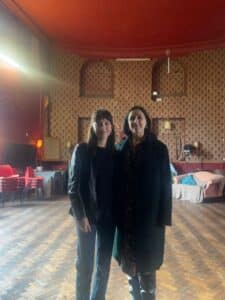
Connection and open hearted creativity
The greatest thing I gained from the time and space given to me via the residency, was connection. I was lucky enough to share the experience with a fellow writer from the Midlands, who along with the open-hearted creative Dorset residents helped anchor me in the seas of daily life crammed to bursting with hustling and living and dying.
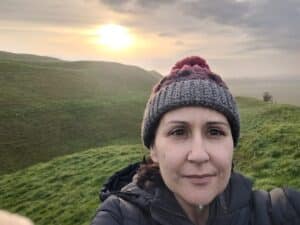
Chloe Whiting and Dayal Kindy came from the Midlands to spend five days in Dorset on our fully funded writing residency. With thanks to everyone who made it possible.
Photo credit novel night images: Ella Squirrell


